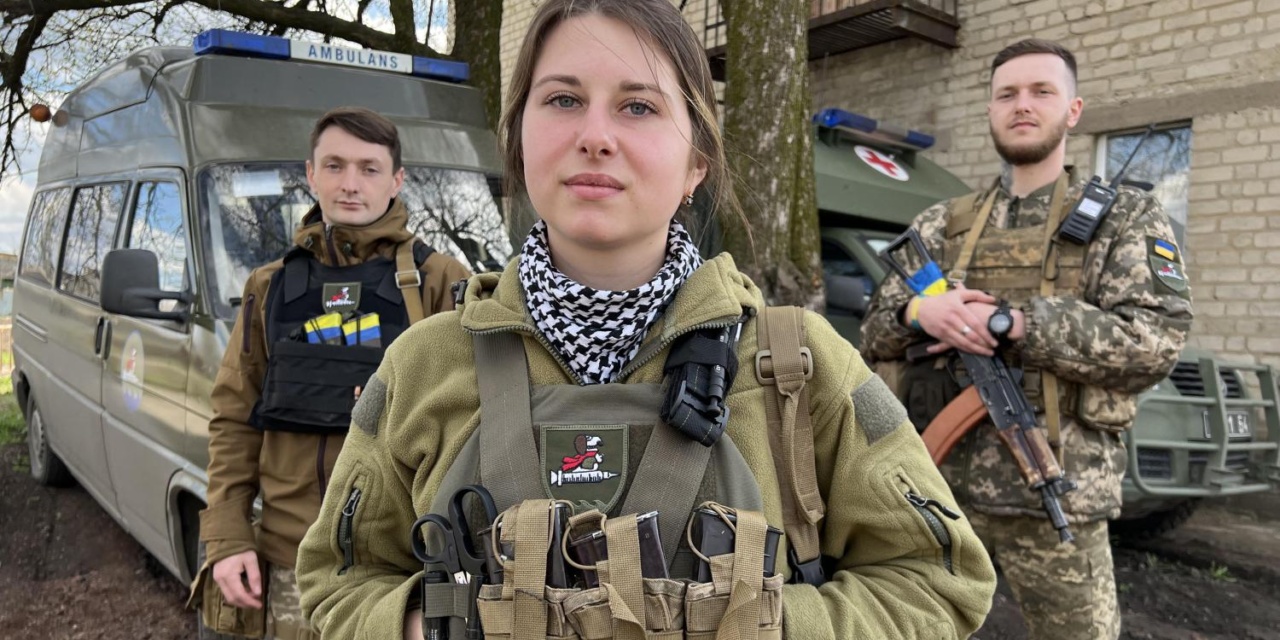Originally published on Monique Camarra’s Substack:
Over dinner, my husband and I were talking about the war. We were saying that this is the most difficult time: keeping our focus and devising ways to give a helping hand to our Ukrainian friends when it seems as if little is happening or moving on the line of contact.
News about the war has dropped dramatically on most media outlets, and it is being replaced by pro-Kremlin voices calling the Ukrainian counteroffensive a failure because it has not wrapped up in 10 episodes like a TV series. It is frustrating and absurd but I listen to Madi, one of my friends, who echoes the advice of many others:
To all non-Ukrainians who feel discouraged, do not give up. Be it as it may, fate has given us the best chance in centuries to correct the ongoing wrongs and expose the ongoing and historical lies.
— Madi Kapparov (@MuKappa) August 20, 2023
He’s right. This is the moment we need to bolster our resolve, and keep our focus on the little ways, as civilians and non-Ukrainians, that we can give a helping hand.
“We Must Be Patient”
The first thing to realize is that the war will not be over until Ukraine wins. Full-stop. It may take more time than what any of us thought and much more help on our part.
The Allied offensive that kicked off on D-Day in World War II took more than two months before there were any results. I do not think Russia can be stopped and defeated in Ukraine in just two or 4fourmonths. I believe that the war will go on for at least another 12 to 24 months. That’s much more realistic, given that Russia still receives Western technology and parts for its weapons and still sells its oil and gas on the market, refurbishing its war chest. It’s a resourceful country, a federation, with allies that have stepped in to keep it alive.
We must be patient, and think of the work the Ukrainians are doing on the ground and the difficulties they face in battle and in every day life. They have no choice: they must defeat Russia and send those criminals home or perish as a people. It’s not an exaggeration if you consider what has happened to any city or population “liberated” by Russia in this war or any other before it.
Time for Some Serious Decisions
Now that the allied leadership is back from vacation, they’ll need to make some serious decisions. They must spell out if they are all in or not.
That may sound harsh given the amount of weaponry and ammunition and aid that have come from all corners of the world to support Ukraine. But I still get the sense that the allies have not set out exactly what the strategic goals are: do they want Ukraine to win the war and Russia to lose it? Saying you stand with Ukraine and want victory is easy — making it happen in a timely fashion is another story.
One positive step was taken yesterday. Allied fighter aircraft are now making their way to Ukrainian airfields. That’s good: the allies are coming through on this promise. Ukraine can now aspire to protecting its skies and accompanying their combined ground operations with air cover.
It’s not enough, though. The allied nations need to close third-sector loopholes that allow Western technology and parts to find their way into Russia through a complex web of secondary routes — mostly China, Belarus and Iran — for example, for the Russian tool and die industry to make parts for drones and other weaponry guidance systems. According to my contacts, the Russians have increased production output five-fold in some factories.
Depriving Russia of war materiel should be coupled with the delivery of long-range missiles and other means to begin knocking out Russian armaments industries, infrastructure, and supply routes.
Logistics, logistics, logistics. The more chaos you create in the factories and along those routes, the harder it is for Russia to keep it together on the battlefield. Why is this taking so long?
“They Do Not Give Up”
Continued tepid allied assistance to Ukraine risks bringing victory to Russia in the long term — exactly what the Kremlin is banking on.
Ukraine has defeated the Russian forces in the Battle of Kyiv, the Battle of Kharkiv, and the Battle of Kherson, but the entrenched Russian defensive positions in southern Ukraine are formidable. They had an entire winter to put up over 20 kms of defensive belts, while we were debating stupidly about armaments deliveries with fears of escalation. Defeating them in southern Ukraine will take much more kit than we have been providing to this day.
Should Ukraine lose the war, we will be faced with an entrenched Russian leadership and its forces in Ukraine on the borders of NATO member states, changing the geopolitical and security landscape for years to come. More importantly, it would also bring about the end of the existing Ukrainian population.
It is too bleak to think about right now — but we must.
I leave you with this video about Ukrainian medics saving lives on the line of contact. It is moving, and it is hopeful because they do not give up. They save lives, and they save families from tragedy and sorrow.
We could be doing the same.
Lottano per ogni vita. Vedono la sofferenza e la morte. Ma non rinunciano a salvare le vite degli eroi.
📹 – 47ª Brigata meccanizzata pic.twitter.com/d63KdLBKiP
— UkraineWorld Italiano (@uaworldit) August 20, 2023

